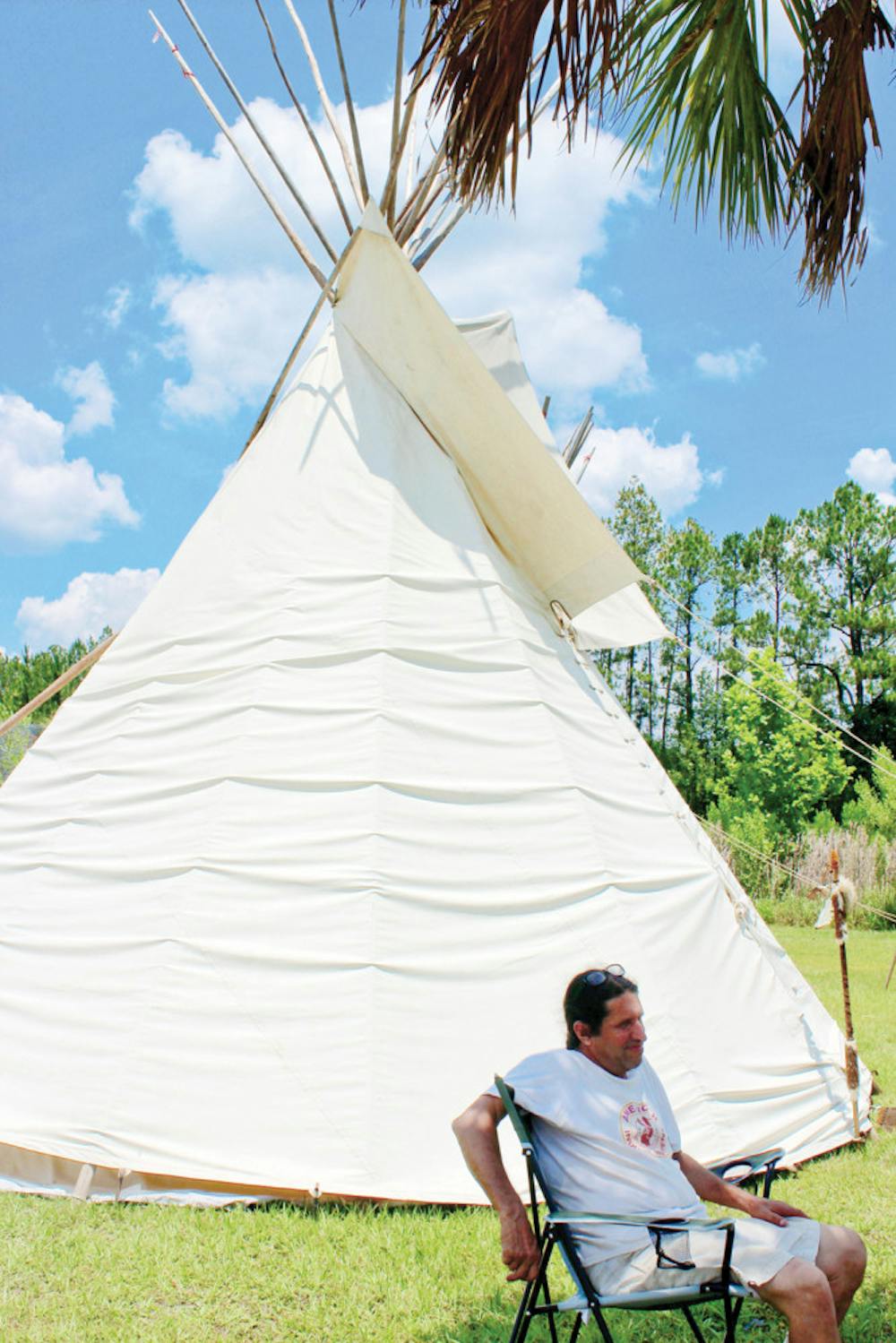Running Bear brought his tipi village out to the Waldo Farmers and Flea Market on Saturday, and it was filled with a collection of items from the Oglala Lakota tribe.
As a storyteller and historian for the Lakota tribe, Running Bear — who was born and raised on the Pine Ridge Indian Reservation in South Dakota and owns the Running Bear’s Trading Post — said he hopes to use the tipi village to provide an opportunity for visitors to learn more about Native Americans.
He will be returning to the market every weekend.
“(I want) to teach the children and give them some education about the true way of the native people,” he said.
The village consists of two tipis that are constructed of tan canvas on wood frames and decorated inside with furs and skins. Tipi is the Lakota spelling of the English word “teepee.”
The largest tipi is the size of 13 buffalo hides, Running Bear said. Some Lakota Indians still live in tipis like the ones he has on display.
He said there were once 70 children packed into the tipi quietly listening to his stories. The stories Running Bear shared primarily focused on the American government’s oppression of Native Americans.
Running Bear is his legal name, but he said the federal government also requires him to have a “Christian” name, which is Patrick McCormack.
Peggy McCormack, Running Bear’s wife, has hand-made crafts for sale near the tipis. Although she has very little Native American blood, she said she has developed an interest in the culture and the art.
She said she taught herself how to weave baskets out of wet pine needles and string.
She has continued to learn new skills, and she said she hopes to pass them on to those who visit the tipi village.
“I don’t mind teaching other people,” said McCormack. “You can charge, but why would I want to charge a little kid or a teenager, you know?”
McCormack said passing on an art that is nearly extinct is more important to her than a profit, and she plans to teach visitors something new every week.
“That’s basically why I do this,” McCormack said.
She said she considers her job to be similar to Running Bear’s.
“He’s trying to teach history and heritage that is not taught anymore,” she said.
McCormack said she enjoys creating new things out of something old, such as the bags and friendship bracelets she had for sale that were made out of worn-out T-shirts.
Running Bear said he plans to be at the farmers market with his tipi village each weekend from 10 a.m. to 3 p.m., and he is looking forward to giving others the opportunity to hear the Lakota tribe’s unique stories.
“We had our own languages here,” he said. “We had our own culture, our own way of life.”
Running Bear, owner of Running Bear’s Trading Post, sits outside of his tipi village at the Waldo Farmers and Flea Market Sunday. The tipis are decorated with traditional Native American items.






